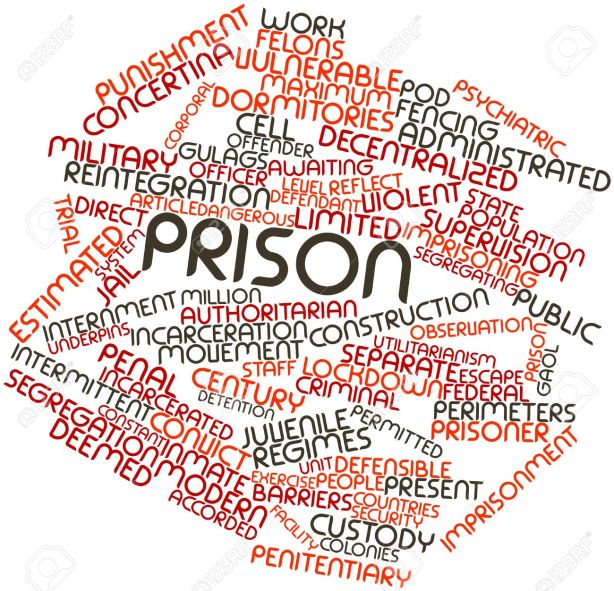Hossein Derakhshan was in prison in Iran for six years, convicted for speech crimes relating mainly to his blogging. He has recently written about his newfound freedom, but also about how blogging and the internet transformed, not necessarily for the good, whilst he was incarcerated. I recommend you read his article in full, in medium.
I am posting an extract here that I found particularly resonant with some of my own experiences. Maybe one day I’ll be ‘free’ enough to blog about them. In the meantime, I’m relying on the courage and clear expression of Hossein Derakhshan:
‘There’s a story in the Quran that I thought about a lot during my first eight months in solitary confinement. In it, a group of persecuted Christians find refuge in a cave. They, and a dog they have with them, fall into a deep sleep. They wake up under the impression that they’ve taken a nap: In fact, it’s 300 years later. One version of the story tells of how one of them goes out to buy food — and I can only imagine how hungry they must’ve been after 300 years — and discovers that his money is obsolete now, a museum item. That’s when he realizes how long they have actually been absent.
The hyperlink was my currency six years ago. Stemming from the idea of thehypertext, the hyperlink provided a diversity and decentralisation that the real world lacked. The hyperlink represented the open, interconnected spirit of the world wide web — a vision that started with its inventor, Tim Berners-Lee. The hyperlink was a way to abandon centralization — all the links, lines and hierarchies — and replace them with something more distributed, a system of nodes and networks.
Blogs gave form to that spirit of decentralization: They were windows into lives you’d rarely know much about; bridges that connected different lives to each other and thereby changed them. Blogs were cafes where people exchanged diverse ideas on any and every topic you could possibly be interested in. They were Tehran’s taxicabs writ large.
Since I got out of jail, though, I’ve realized how much the hyperlink has been devalued, almost made obsolete.
Nearly every social network now treats a link as just the same as it treats any other object — the same as a photo, or a piece of text — instead of seeing it as a way to make that text richer. You’re encouraged to post one single hyperlink and expose it to a quasi-democratic process of liking and plussing and hearting: Adding several links to a piece of text is usually not allowed. Hyperlinks are objectivized, isolated, stripped of their powers.
At the same time, these social networks tend to treat native text and pictures — things that are directly posted to them — with a lot more respect than those that reside on outside web pages. One photographer friend explained to me how the images he uploads directly to Facebook receive a large number of likes, which in turn means they appear more on other people’s news feeds. On the other hand, when he posts a link to the same picture somewhere outside Facebook — his now-dusty blog, for instance — the images are much less visible to Facebook itself, and therefore get far fewer likes. The cycle reinforces itself.
Some networks, like Twitter, treat hyperlinks a little better. Others, insecure social services, are far more paranoid. Instagram — owned by Facebook — doesn’t allow its audiences to leave whatsoever. You can put up a web address alongside your photos, but it won’t go anywhere. Lots of people start their daily online routine in these cul de sacs of social media, and their journeys end there. Many don’t even realize that they’re using the Internet’s infrastructure when they like an Instagram photograph or leave a comment on a friend’s Facebook video. It’s just an app.
But hyperlinks aren’t just the skeleton of the web: They are its eyes, a path to its soul. And a blind webpage, one without hyperlinks, can’t look or gaze at another webpage — and this has serious consequences for the dynamics of power on the web.
More or less, all theorists have thought of gaze in relation to power, and mostly in a negative sense: the gazer strips the gazed and turns her into a powerless object, devoid of intelligence or agency. But in the world of webpages, gaze functions differently: It is more empowering. When a powerful website — say Google or Facebook — gazes at, or links to, another webpage, it doesn’t just connect it — it brings it into existence; gives it life. Metaphorically, without this empowering gaze, your web page doesn’t breathe. No matter how many links you have placed in a webpage, unless somebody is looking at it, it is actually both dead and blind; and therefore incapable of transferring power to any outside web page.
On the other hand, the most powerful web pages are those that have many eyes upon them. Just like celebrities who draw a kind of power from the millions of human eyes gazing at them any given time, web pages can capture and distribute their power through hyperlinks.
But apps like Instagram are blind — or almost blind. Their gaze goes nowhere except inwards, reluctant to transfer any of their vast powers to others, leading them into quiet deaths. The consequence is that web pages outside social media are dying.’

 The following principles of academic freedom are taken from an interesting 2009 statement by UCU, one of the major trades unions for academics, researchers and other higher education staff. I recommend reading the whole thing
The following principles of academic freedom are taken from an interesting 2009 statement by UCU, one of the major trades unions for academics, researchers and other higher education staff. I recommend reading the whole thing 










